Last updated: September 16, 2023
Raw, white, or brown sugar, which is the best choice? This guide explains the differences between the various types of sugar.
Let’s face it, we all have a bit of a sweet tooth. Most of us love a little snack in the afternoon or a delicious dessert after dinner. Nothing wrong with that.
But when we use sugar as an ingredient in our cooking, or when we put sugar in our coffee or tea, what type of sugar should we choose?
In this article, I am going to have a closer look at the differences between raw sugar, white sugar, and brown sugar, so you know which one is right for you.
Raw vs White vs Brown Sugar
High sugar consumption can come at a cost, such as an increased risk of obesity, diabetes, and other illnesses. That is why it’s essential to not only cut down on sugar, but also to choose the best type.
Let’s have a closer look at the three different types of sugar:
- Raw sugar
- White sugar
- Brown sugar
1. Raw Sugar
Unrefined, raw sugar is made from the juice of the sugarcane plant.
Two to six meters tall, the sugarcane plant is native to the warm regions of South Asia, Southeast Asia, and New Guinea, and is used primarily for sugar production.
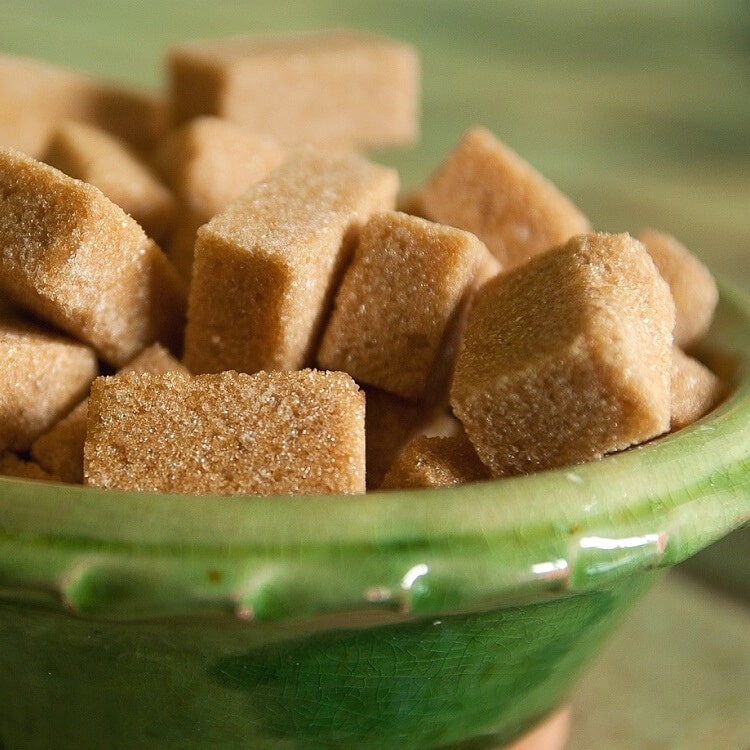
The raw type of sugar is considered to have some degree of nutritional value because it has the same vitamin and mineral consistency as sugarcane plant juice.
Raw sugar has a brown color because of the presence of molasses, a by-product of refining sugarcane that contains a number of essential minerals and vitamins.
2. White Sugar
Refined white sugar is produced in the same manner as raw sugar, but chemicals are added to bleach the sugar and to absorb impurities.
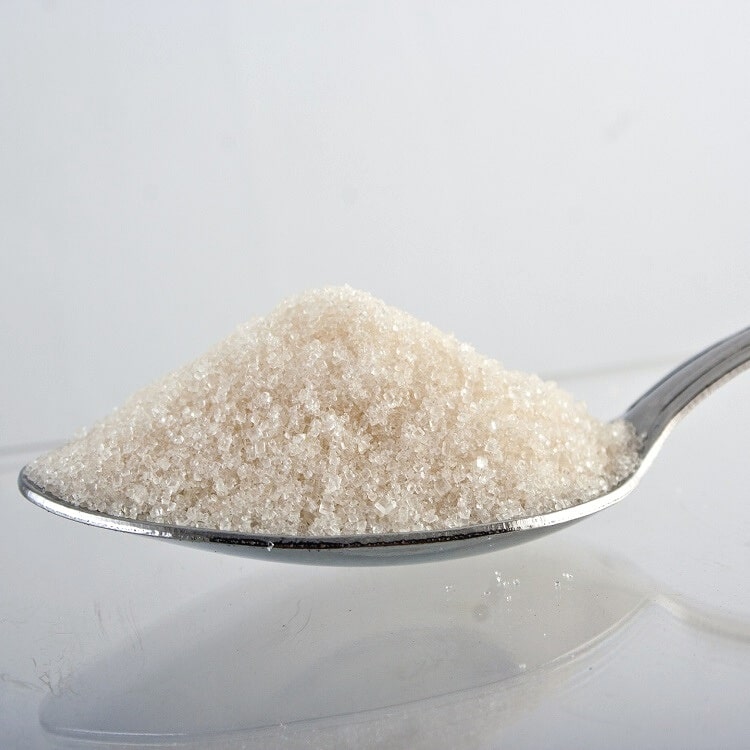
Because white sugar is heavily processed, it offers no nutritional value and is considered to be empty calories. In addition, refined sugar can elevate blood sugar levels, which in turn can lead to an increased risk of diabetes.
As you can guess, refined white sugar is definitely not a healthy choice.
3. Brown Sugar
Brown sugar is essentially the same as refined white sugar. The critical difference is that brown sugar has varying amounts of molasses added back into it.
It comes in different brown colors depending on the amount of molasses that has been added. Like white sugar, brown sugar does not have the nutritional content of raw sugar and consists of sucrose.
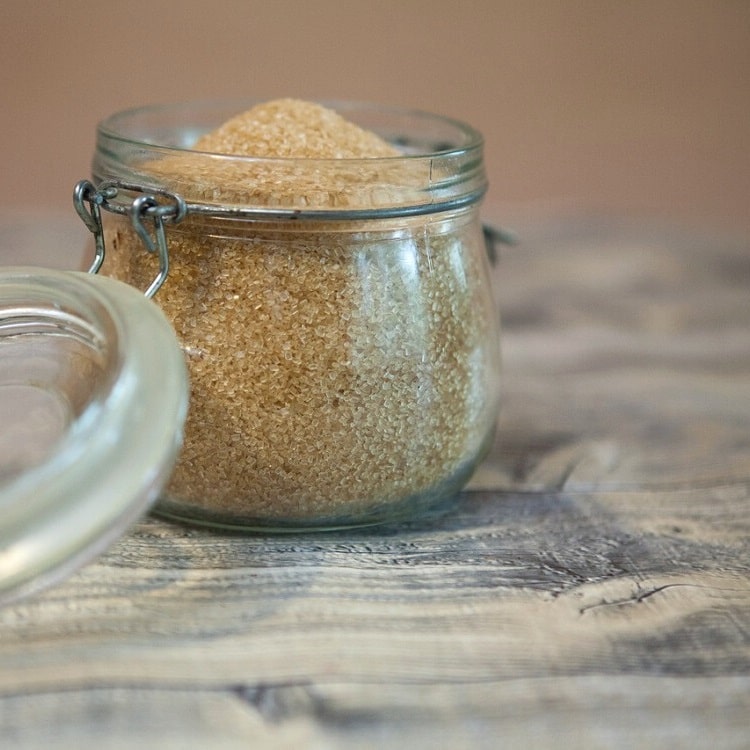
It is a big misconception to believe that brown sugar is the same as raw sugar because those two types of sugar are actually fundamentally different.
But the reality is that far too many people choose brown sugar, thinking they are consuming raw and natural sugar.
You guessed it, brown sugar is also not the best choice of sugar.
What About Artificial Sweeteners?
Another misconception to believe is that artificial sweeteners are a healthier and better alternative to real sugar.
Artificial sweeteners, such as aspartame and saccharin, are typically made of chemical ingredients and can potentially have harmful side effects.

Even though artificial sweeteners may have received the tick of approval from health authorities such as the FDA, it doesn’t mean that they don’t carry any health risks.
Also, sweeteners can trick the brain into thinking that you’re consuming sugar, which can lead to more cravings and, ultimately, more sugar intake.
White vs green vs black tea.
Conclusion
Unrefined raw sugar is by far the best choice because it is the most natural and it contains minerals and nutrients. These minerals and nutrients are stripped from refined white sugar and brown sugar.
In addition, when sugar is refined and processed, potentially harmful ingredients are added to the sugar. Raw sugar, on the other hand, does not have these chemicals.
With major health issues such as diabetes and obesity in the Western world, it is crucial to think carefully about what type of sugar to use and how much of it. A large amount of sugar in your diet is never a good thing, but using white sugar will only make matters worse.
Choose natural ways to add sweetness to your life, like raw sugar, honey, or stevia. These types of products offer nutritional benefits and don’t have a negative effect on your health when consumed in moderation.
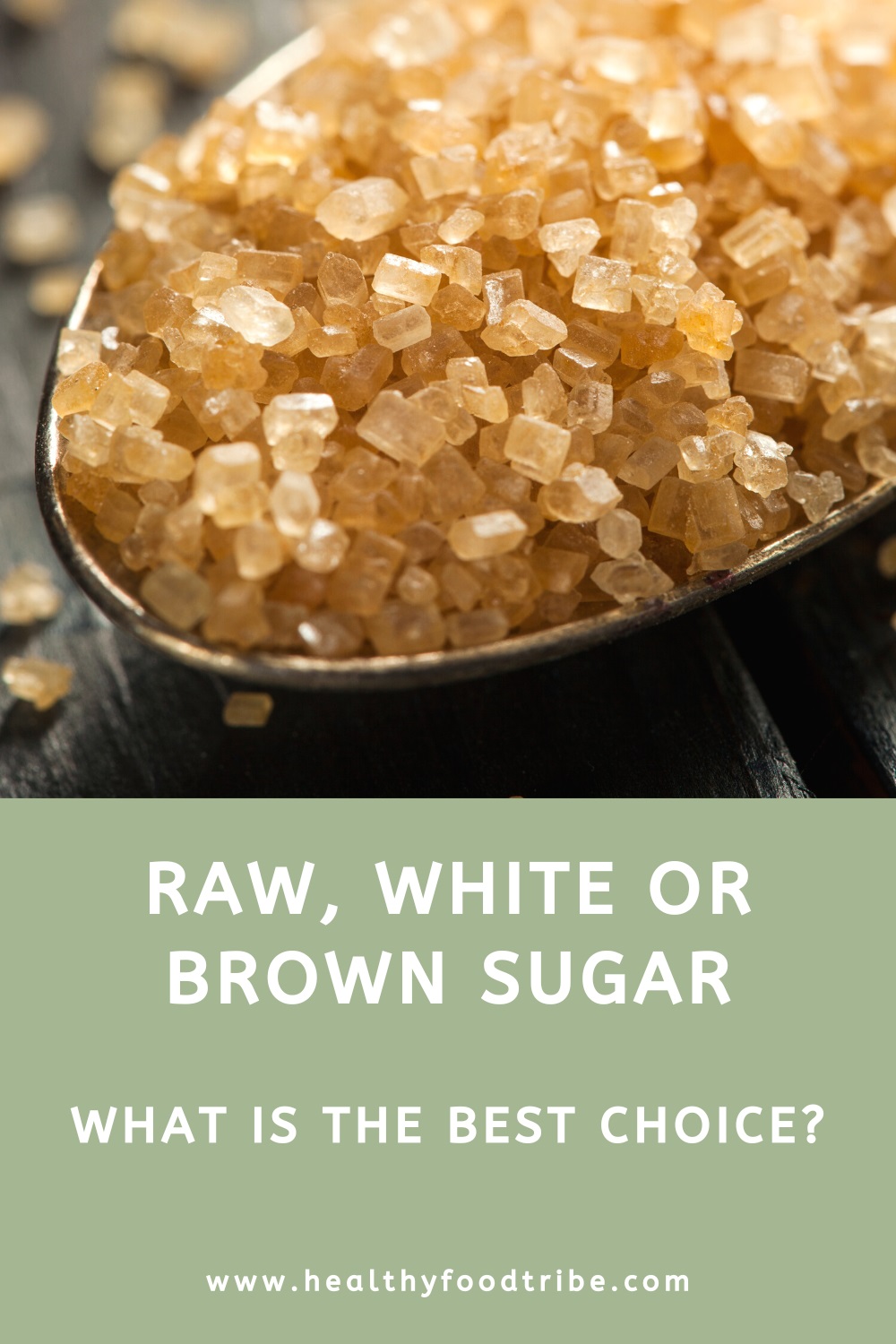
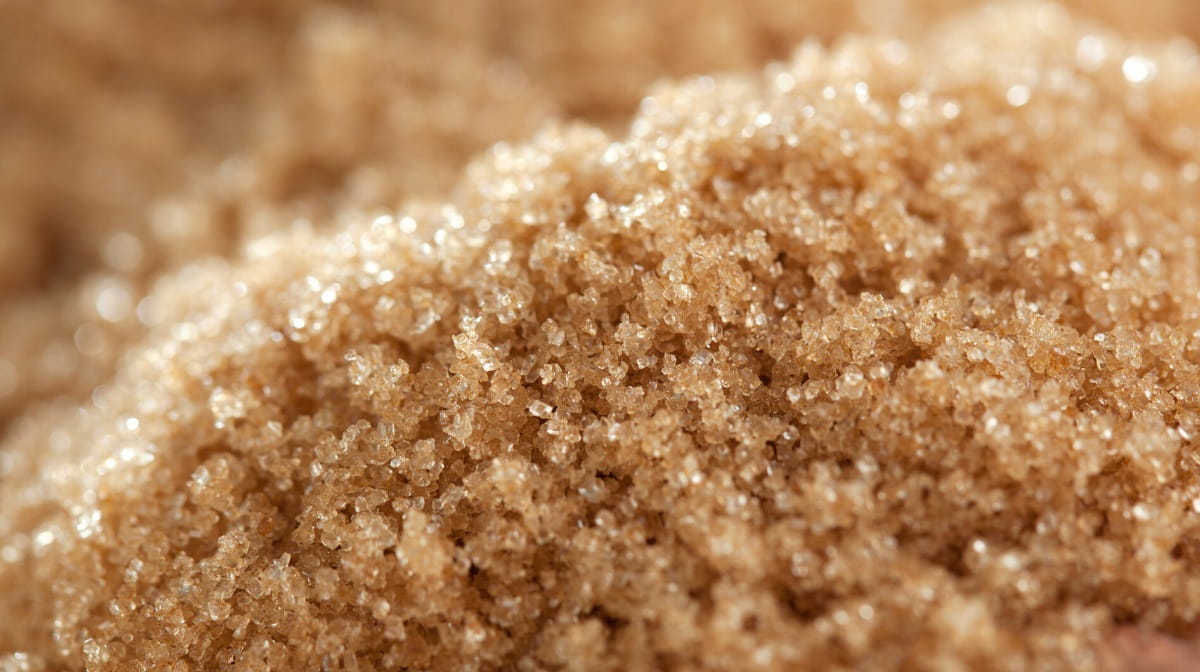
Dear Donna,
Is it okay to bake with raw sugar?
Hello, you can certainly use raw sugar for baking but, depending on what you’re baking, the raw sugar typically adds more (unwanted) moist. So to be on the safe side, it might be better to use refined sugar for baking purposes.
Hi, thank you for your post.
Can you tell me which is the difference in between the natural unrefined cane sugar and the raw sugar you explained, if there is any.
Thank you!
Hi Amy, raw sugar is essentially unrefined cane sugar. Always the best choice.
Here in Costa Rica, they have a “brown” sugar that seems more like raw sugar. They have white and raw sugars, but only one type of brown which has little dark balls in it. I’d be surprised if it was white sugar with molasses added. Do you know how healthy it might be?
Thanks for sharing Rick, that’s an interesting story. I don’t have the answer for you, but I will definitely do a bit of research into those types of sugars in Costa Rica you’re describing.
I am highly sensitive to Stevia and it seems everything has Stevia in it these days. I prefer not to use sugar at all. Is there an alternative other than Stevia or sugar that you would suggest?
Hi Nola, have you tried honey? It doesn’t work with everything, but I personally love adding a small teaspoon of honey to my tea or coffee.
What is the difference between raw sugar and brown sugar, if both sugars molasses are added then how can we differentiate, waiting for your kind response.
Hi Zubair,
Brown sugar is essentially the same as white sugar, heavily processed, but with molasses ultimately added back into it. This makes brown sugar look healthier and more natural, but it isn’t. Raw sugar is less processed and the molasses content is natural.
Hi Donna,
I like to bake from time to time, and make breads. I understand your comments re raw sugar. I have however a recipe book that uses Stevia and rice malt syrup. Having done some cursory research, I’m not convinced of their heath benefits. I avoid sugar drinks, sugar in coffee, and there are food recipes that use no sugar at all.
Thoughts?
Hi Kevin,
I simply try to avoid adding sugar as much as possible. But if I do need to add sugar to a dish, I prefer to use more natural, less processed products, such as raw sugar. Stevia and rice malt syrup are great options too. I’m not too focused on their health benefits, I just prefer to avoid processed products as much as I can.
Hope this helps!